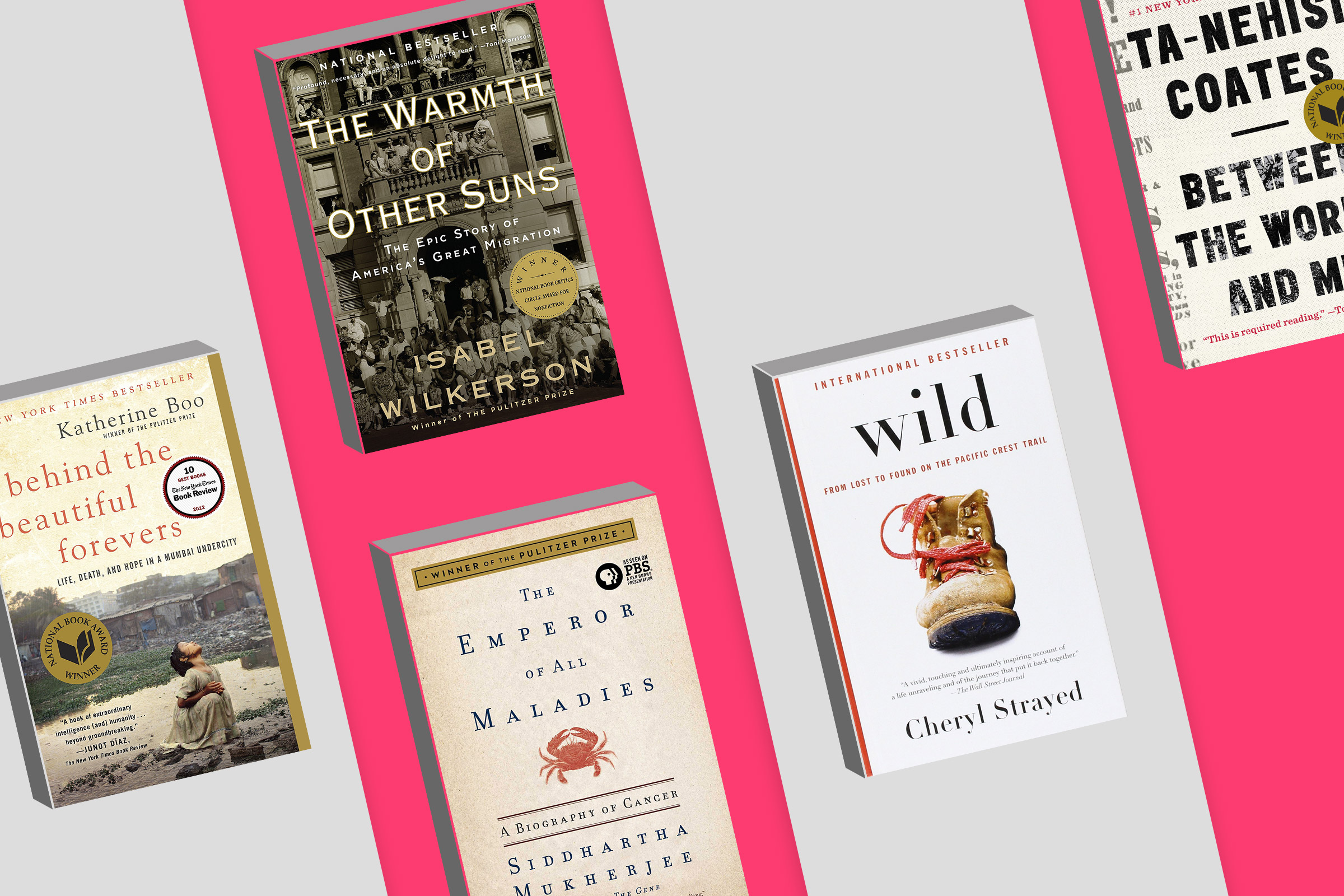
Many of the best nonfiction books of the decade tap into the lives of individuals to speak to universal human experiences — those of grief and recovery, hubris and failure, dreams and disappointments. Some, in their intimate specificity, open doors to worlds that only few have seen. All employ dazzling prose to draw readers further into their insights. And taken together, they reflect a decade’s worth of brilliant successes in locating unassailable truths: those to which we’ve been willfully blind, those we’ve too long feared facing and those we didn’t know were waiting to be discovered.
Here are TIME’s picks for the 10 best nonfiction books of the 2010s, in order of publication year.
The Warmth of Other Suns: The Epic Story of America’s Great Migration, Isabel Wilkerson (2010)
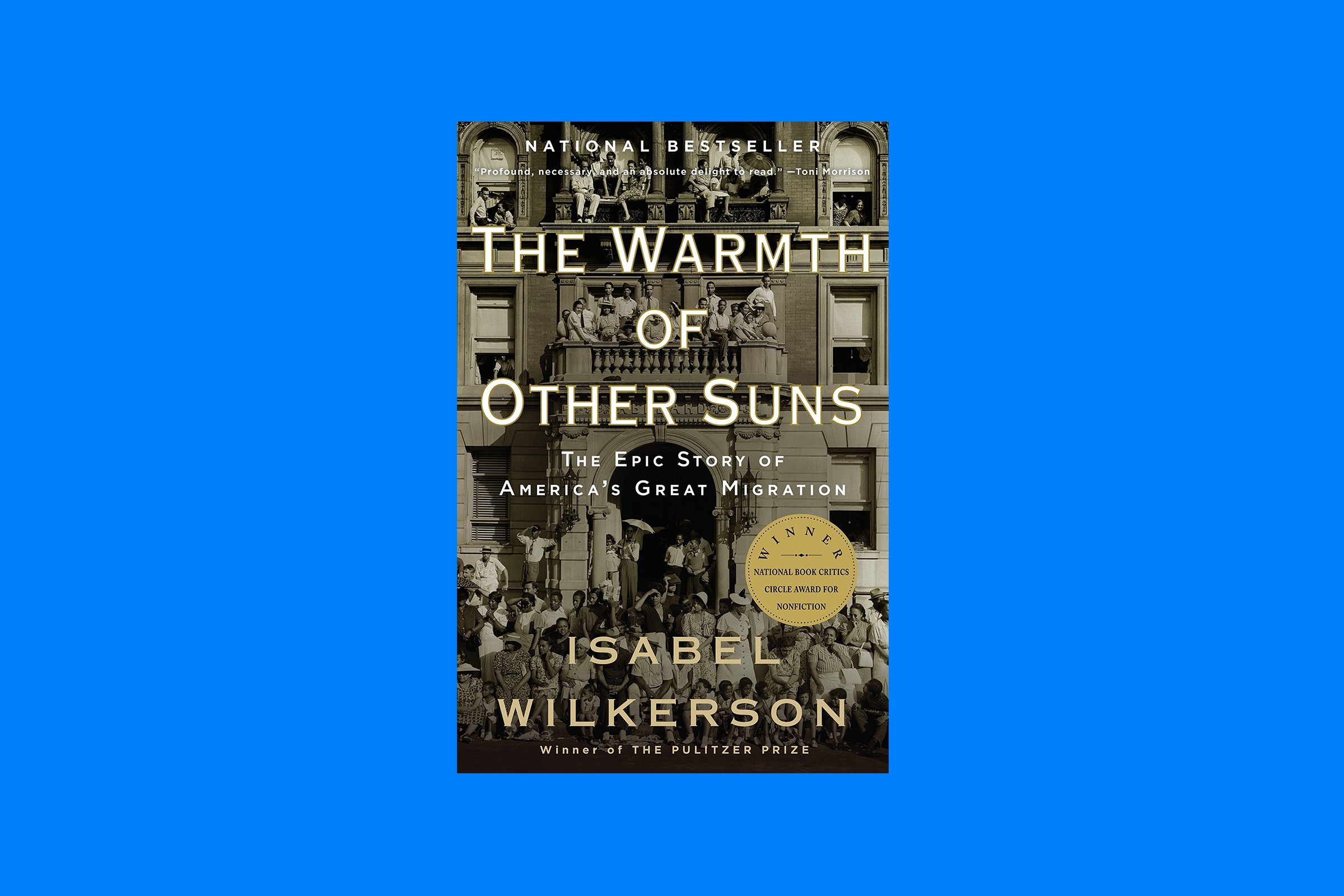
In this epic yet intimate history, Pulitzer Prize-winning journalist Isabel Wilkerson tells the story of one of the most significant migrations in American history — when millions of African-Americans left the South for the North, heading to cities like Chicago, Los Angeles and New York. In focusing on the stories of three individuals, each on their own difficult journey, Wilkerson offers a history that reads and feels like a novel yet speaks to deep, abiding truths about thousands of migrants’ painful experiences of racism, violence and the struggle to succeed against tremendous odds. The Warmth of Other Suns is a profoundly moving book about hope and vision, and what happens when some people determine that they deserve a better life. Wilkerson’s depiction of the quest to reap the full promise of America resonates just as strongly nearly 10 years later.
Buy now: The Warmth of Other Suns: The Epic Story of America’s Great Migration
The Emperor of All Maladies: A Biography of Cancer, Siddhartha Mukherjee (2010)
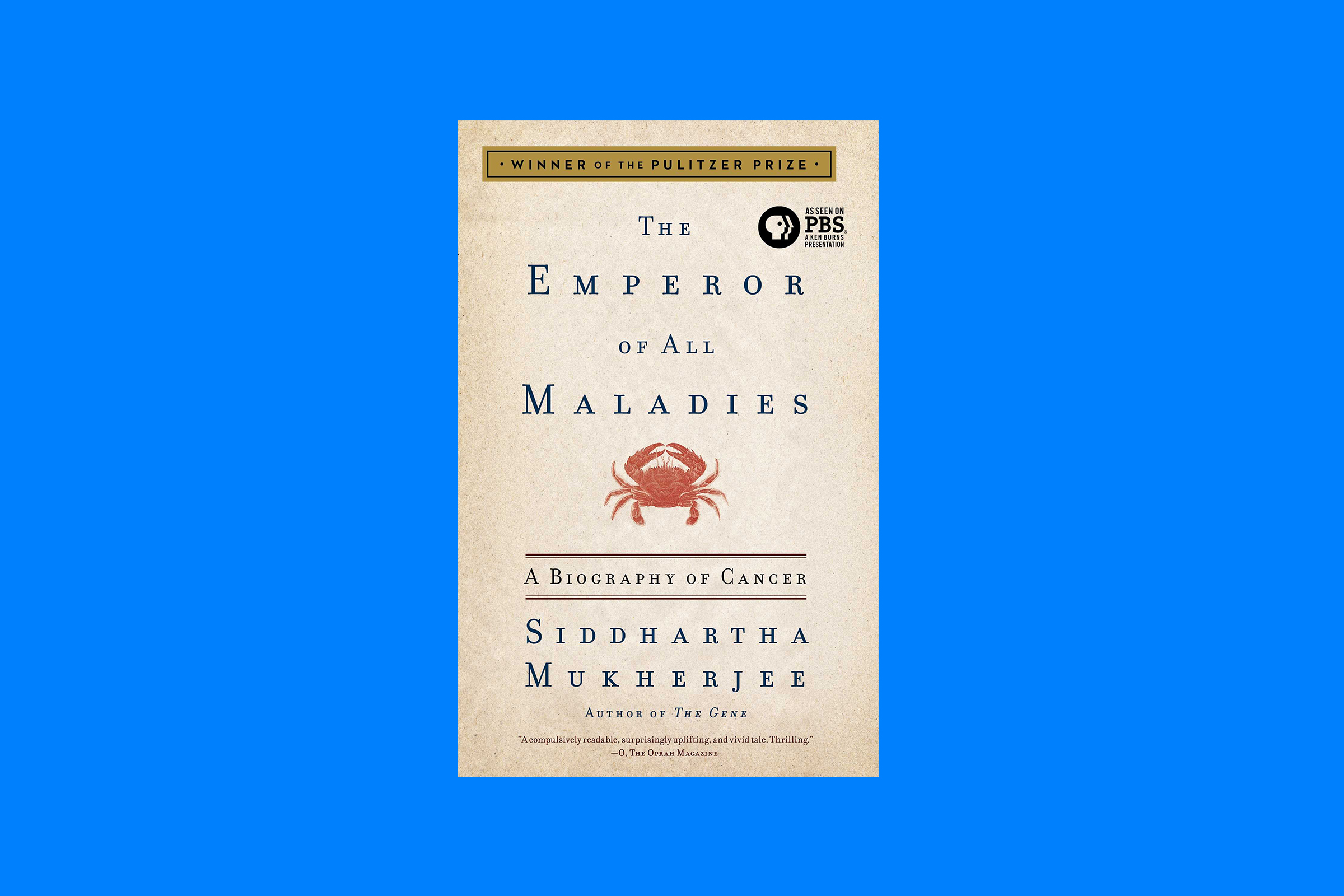
It takes a real boldness and originality to write a “biography” of a disease as pernicious and difficult to define as cancer. We all know it and hate it, but thanks to oncologist and Pulitzer Prize-winning writer Siddhartha Mukherjee’s exceptional book, we can also begin to understand it. From the disease’s earliest origins to the forefront of the modern fight against it, Mukherjee charts the long, twisted story of humankind’s war with cancer — while reminding us that it’s one we can never win, that we are forever entwined with this disease. A model of meticulous science and elegant writing, Mukherjee’s book is ultimately nothing less than a history of humanity.
Buy now: The Emperor of All Maladies: A Biography of Cancer
Behind the Beautiful Forevers: Life, Death, and Hope in a Mumbai Undercity, Katherine Boo (2012)
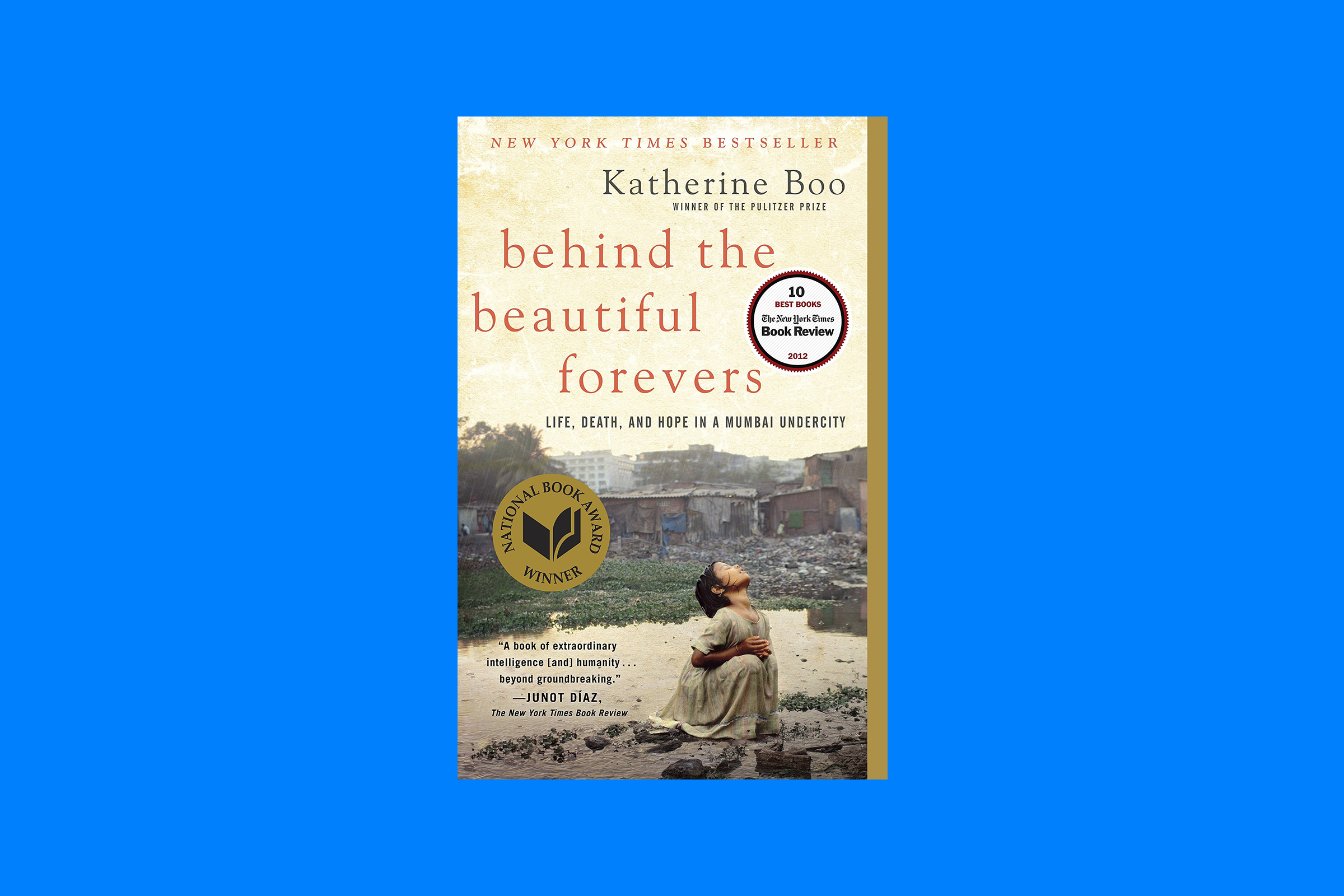
In Katherine Boo’s book about life in a Mumbai slum, the investigative journalist accomplishes a kind of magic trick, transforming a giant piece of reporting into a work that reads like great fiction. Boo does eventually let us behind the curtain, revealing how much effort went into creating something that seems to unfurl with such ease: altogether 40 months spent reporting among the residents of the Annawadi slum, home to 3,000 people living in 335 huts, hard against the city’s growing airport. Her telling is aided by the uncovering of 3,000 public records, as well as interviews with 168 people who describe the book’s catalyzing event — when one woman sets herself on fire. What lingers, above all, is the moral weight of Boo’s story. Behind the Beautiful Forevers shows what Boo sees, through the eyes of Mumbai’s garbage collectors, as the true tragedy of unequal societies: they don’t turn the rich against the poor, they turn the poor against themselves.
Buy now: Behind the Beautiful Forevers: Life, Death, and Hope in a Mumbai Undercity
Wild: From Lost to Found on the Pacific Crest Trail, Cheryl Strayed (2012)
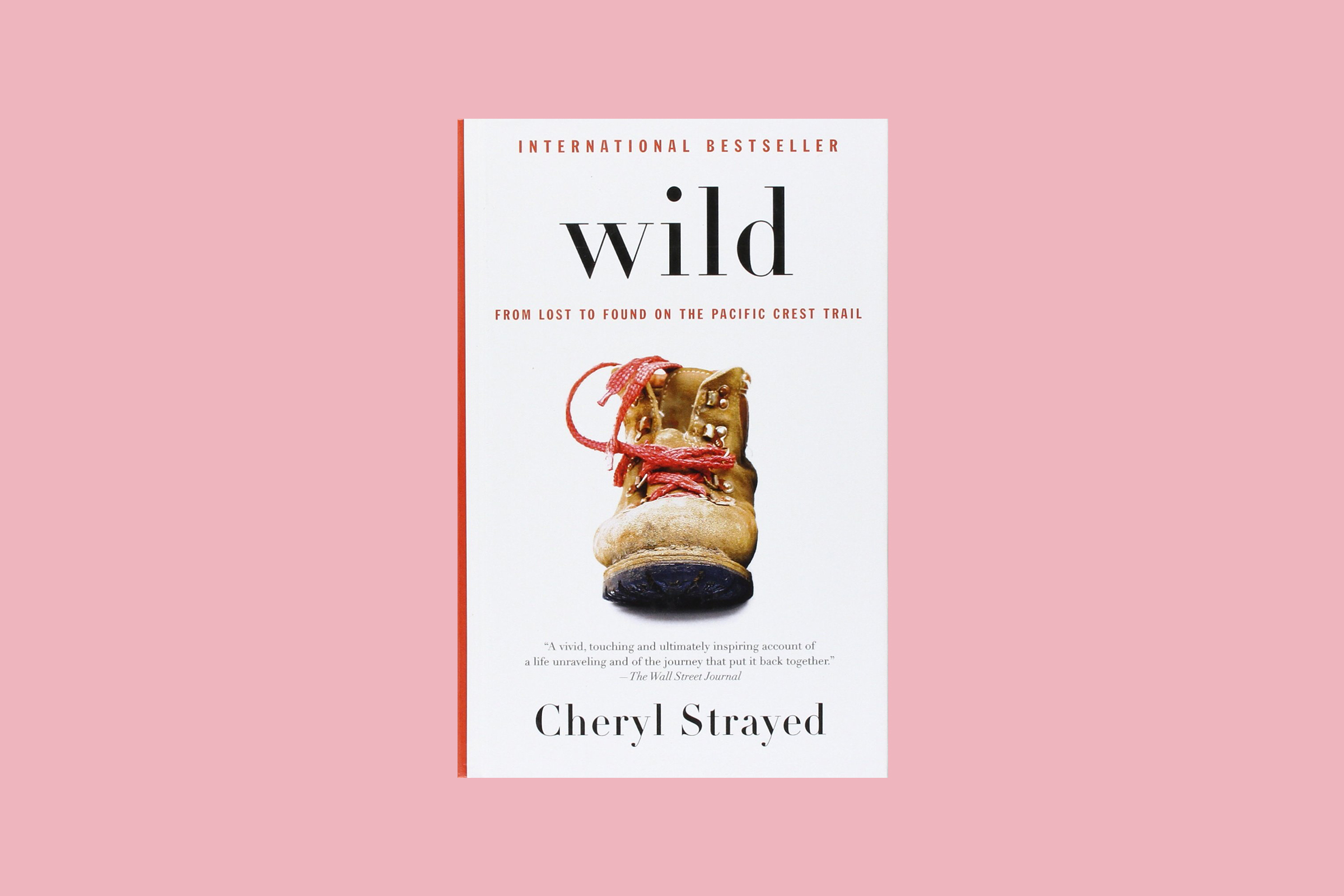
In the early 1990s, Cheryl Strayed watched her life fall apart. Her mother died of cancer, leaving the family fragmented. She started using heroin. Her first marriage ended. As she frames it in her 2012 breakthrough memoir Wild, “I was 26 and an orphan.” Having already endured a lifetime’s worth of pain, one thing she did have going for her was her youth. So she seized that advantage, embarking on a solo hike from California to Washington on the Pacific Crest Trail. Constantly testing her physical and mental limits, the adventure plucked Strayed out of a downward spiral and gave her the strength to grow into the author and advice guru she has since become. Her adventure provided a literal roadmap to transformation for women who feel unmoored. The book crossed over from best-selling memoir to self-help phenomenon, as well as a hit movie starring and produced by Reese Witherspoon. Yet, after so much hype, what remains startling about the book is the candor and insight embedded in Strayed’s forceful prose, which — like her journey itself — sublimate loneliness, sorrow and regret into something transcendent.
Buy now: Wild: From Lost to Found on the Pacific Crest Trail
Wave, Sonali Deraniyagala (2013)
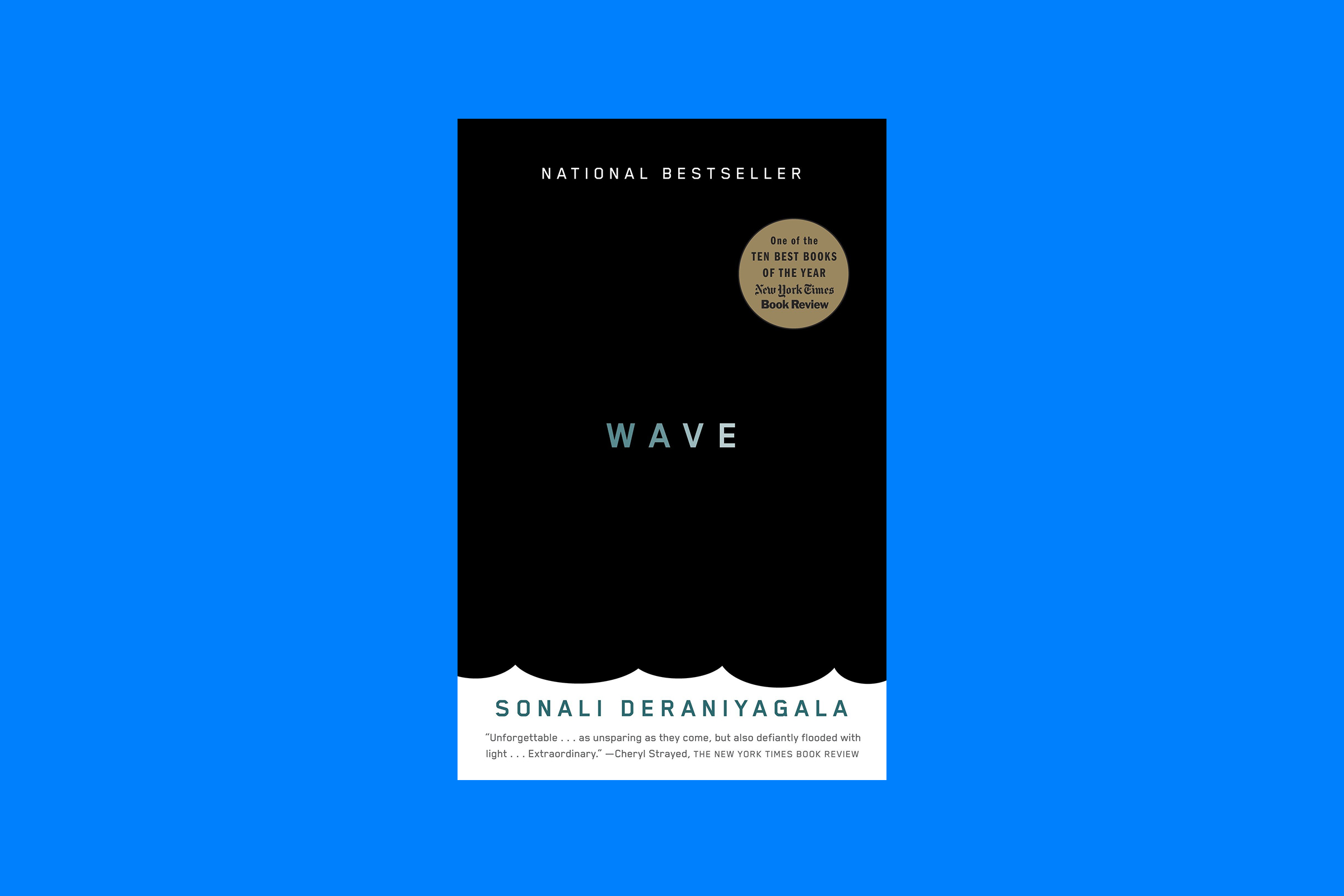
The first pages of Sonali Deraniyagala’s memoir read like a bonafide horror novel. And how could they not? The economist, who lived in London at the time, was vacationing with her family off the Sri Lankan shore when the 2004 Indian Ocean tsunami hit. About a quarter of a million people were killed — and among the victims were Deraniyagala’s parents, husband and two young sons. Deraniyagala managed to survive by hanging onto a tree branch. The magnitude of such a tragedy may seem unfathomable, but Deraniyagala renders it in such searing detail that the pain of losing the most important people in her life in an instant is tangible. Moving from the immediate aftermath of the trauma to the years that followed, she invites readers inside her tormented brain. The story is bruising, but the power of Wave is in its intimate description of how to move forward, even if you can never move on.
Buy now: Wave
Between the World and Me, Ta-Nehisi Coates (2015)
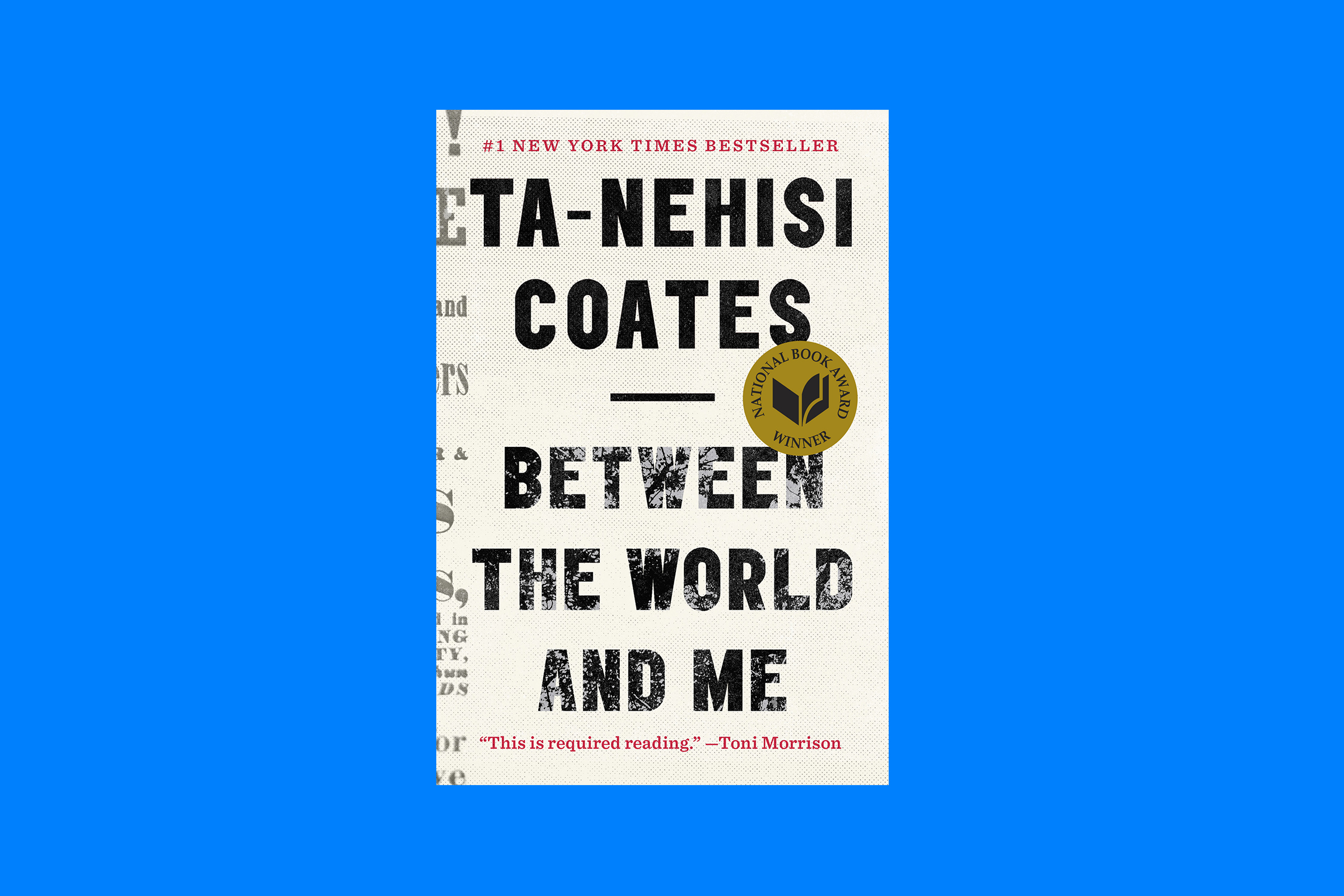
“In America, it is traditional to destroy the black body — it is heritage,” Ta-Nehisi Coates writes in Between the World and Me, which takes the form of a letter to his son. Throughout the book, Coates illustrates how black bodies have been discarded and destroyed at every turn in American history, from centuries of slavery to Jim Crow lynchings to the police killings of Eric Garner and Michael Brown. Coates’ writing is also intensely personal, meditating on the fear instilled in him during his bleak Baltimore upbringing and the fury and hopelessness he felt after his close friend, Prince Jones, was killed by a police officer. The book was a bestseller, won the National Book Award and was a finalist for a Pulitzer Prize. But more importantly, Between the World and Me opened up a national dialogue about the country’s mythology, forcing an uncomfortable and necessary reassessment of the American dream.
Buy now: Between the World and Me
Evicted: Poverty and Profit in the American City, Matthew Desmond (2016)
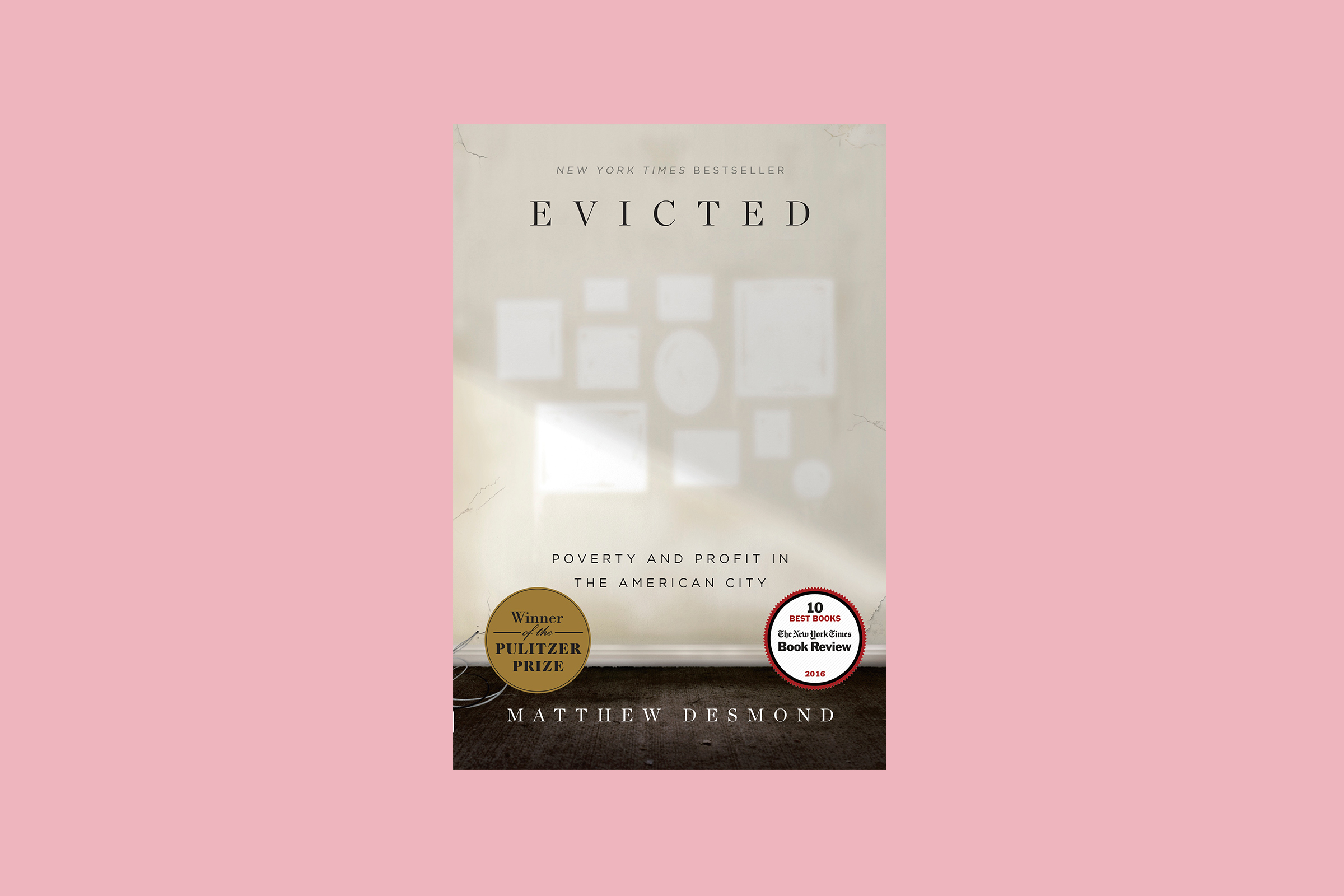
What does it mean to be forced out of your home? For millions of Americans, Matthew Desmond shows in his eye-opening, Pulitzer Prize-winning book, that is a question that must be answered far too frequently. Desmond, a sociologist, follows eight families in Milwaukee as they navigate paltry paychecks, court dates and paperwork in the fight to keep their homes, and he also shows the struggle of landlords who are just trying to keep their properties filled with paying renters. Evicted is a deeply empathetic story of a housing system gone wrong and an examination of how its failures bleed into every other aspect of life, from education to nutrition. In a decade when the country came to further recognize the limits of the American Dream, few books so compellingly used deep reporting to deliver a cry for new policies to provide that most basic necessity: a roof over everyone’s head.
Buy now: Evicted: Poverty and Profit in the American City
The Order of Time, Carlo Rovelli (2018)
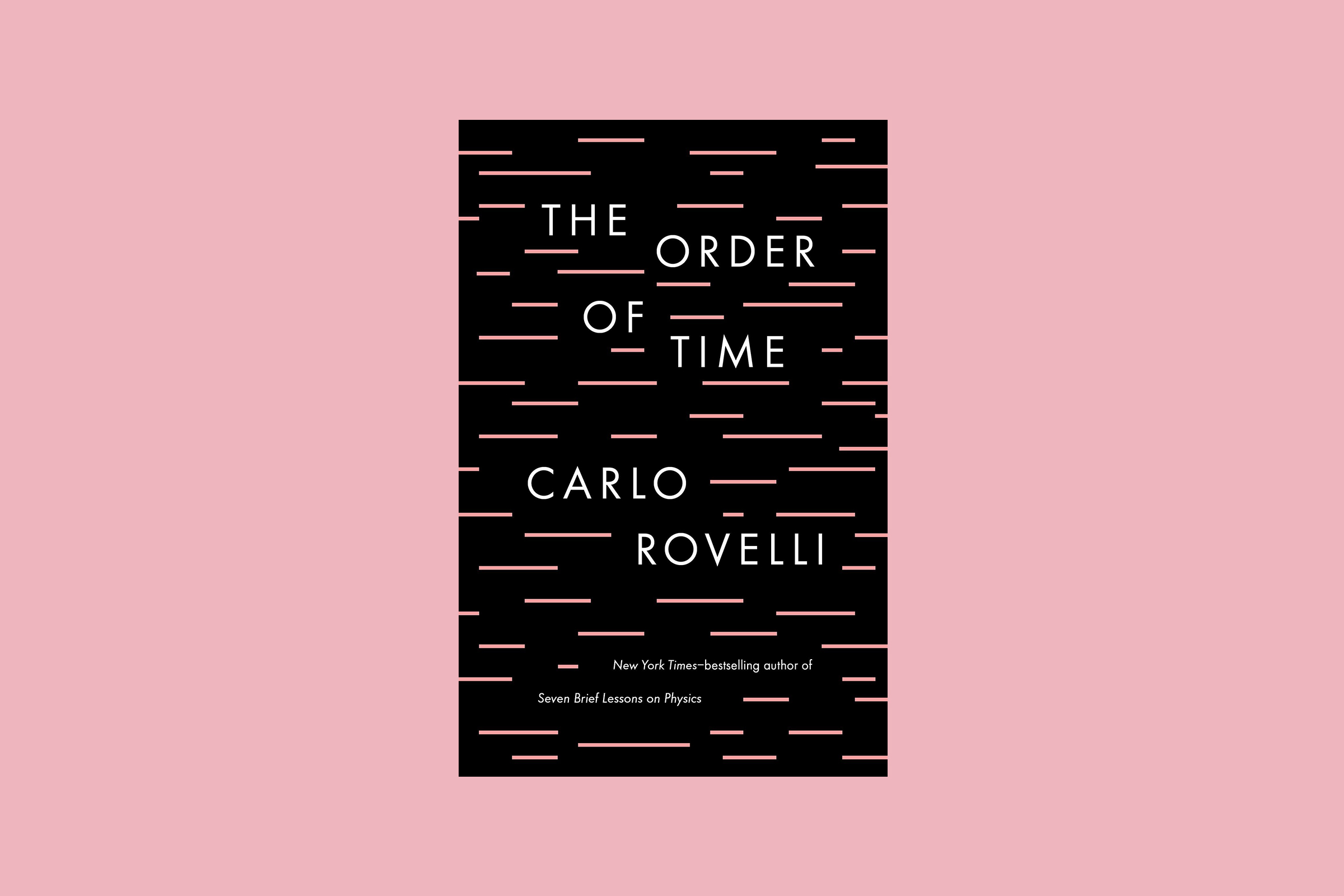
The peculiarities of time are not new to our era, but it still can be hard to avoid the feeling that the world today is especially defined by that inescapable rush forward. Even so, “the nature of time is perhaps the greatest remaining mystery,” theoretical physicist Carlo Rovelli writes in The Order of Time. Rovelli isn’t shy about approaching a great mystery, or about bringing others along for the ride. The scientist’s enlightening follow-up to his bestselling Seven Brief Lessons on Physics replicates the mind-opening feeling of a great university lecture — the pause in the world while the brain races ahead, the student’s connection with the teacher, the click of understanding. As translated from Italian by Erica Segre and Simon Carnell, this trim volume gives poetic voice to the common human experience of moving through time, while simultaneously leaving the reader much more equipped to understand how exactly that happens. Using Smurfs to illustrate physics diagrams but also opening chapters with epigraphs from Horace, it renders complicated theories not just comprehensible, but meaningful, too. The Order of Time is a resounding affirmation of the humanity behind science.
Buy now: The Order of Time
Bad Blood: Secrets and Lies in a Silicon Valley Startup, John Carreyrou (2018)
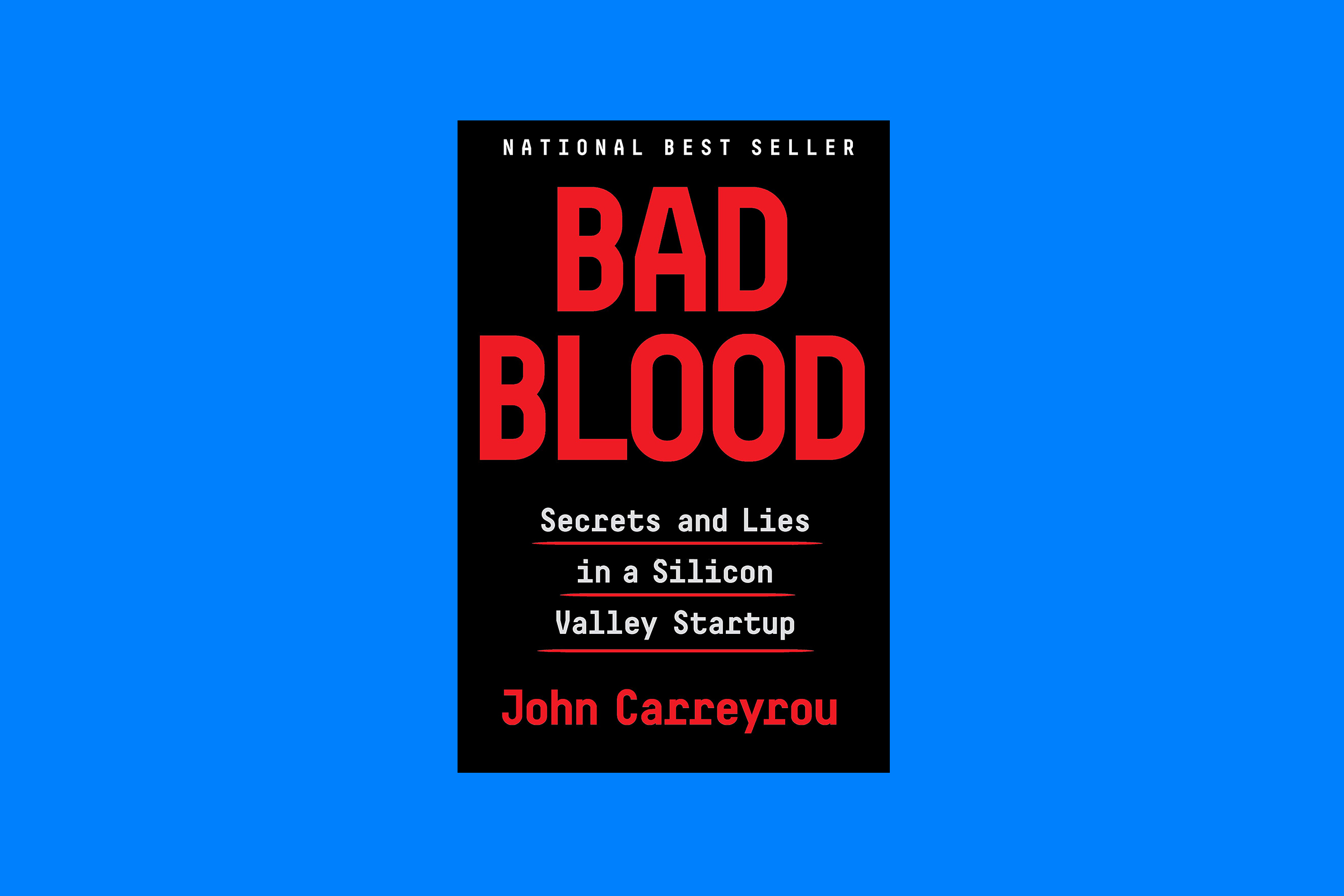
John Carreyrou’s masterclass in investigative reporting might also be the best thriller of the decade. It’s the gripping tale of the rise and fall of Elizabeth Holmes, once hailed as “the next Steve Jobs,” and her now-defunct company Theranos, which claimed to have developed game-changing blood-testing technology but was in fact running a giant scam on its investors and customers. In 2015, Forbes named Holmes America’s Richest Self-Made Woman, with a net worth of $4.5 billion. That same year, Carreyrou, working on an insider tip, published the first article to question the validity of Theranos’ “science.” The house of cards came tumbling down from there. In Bad Blood, Carreyrou, a veteran reporter with the Wall Street Journal, delivers a complete narrative, one that would be impossible to glean from reading incremental reporting alone. He takes readers from A to Z in a disturbing and fascinating tale that involves such characters as then-Vice President Joe Biden, former Secretaries of State Henry Kissinger and George Shultz, future U.S. Secretary of Defense James Mattis, Oscar-winning director Errol Morris and Silicon Valley investment guru Marc Andreessen. What’s more, Bad Blood’s quality of narrative intrigue, tension and character development rivals the great cloak-and-dagger stories in the canon.
Buy now: Bad Blood: Secrets and Lies in a Silicon Valley Startup
These Truths: A History of the United States, Jill Lepore (2018)
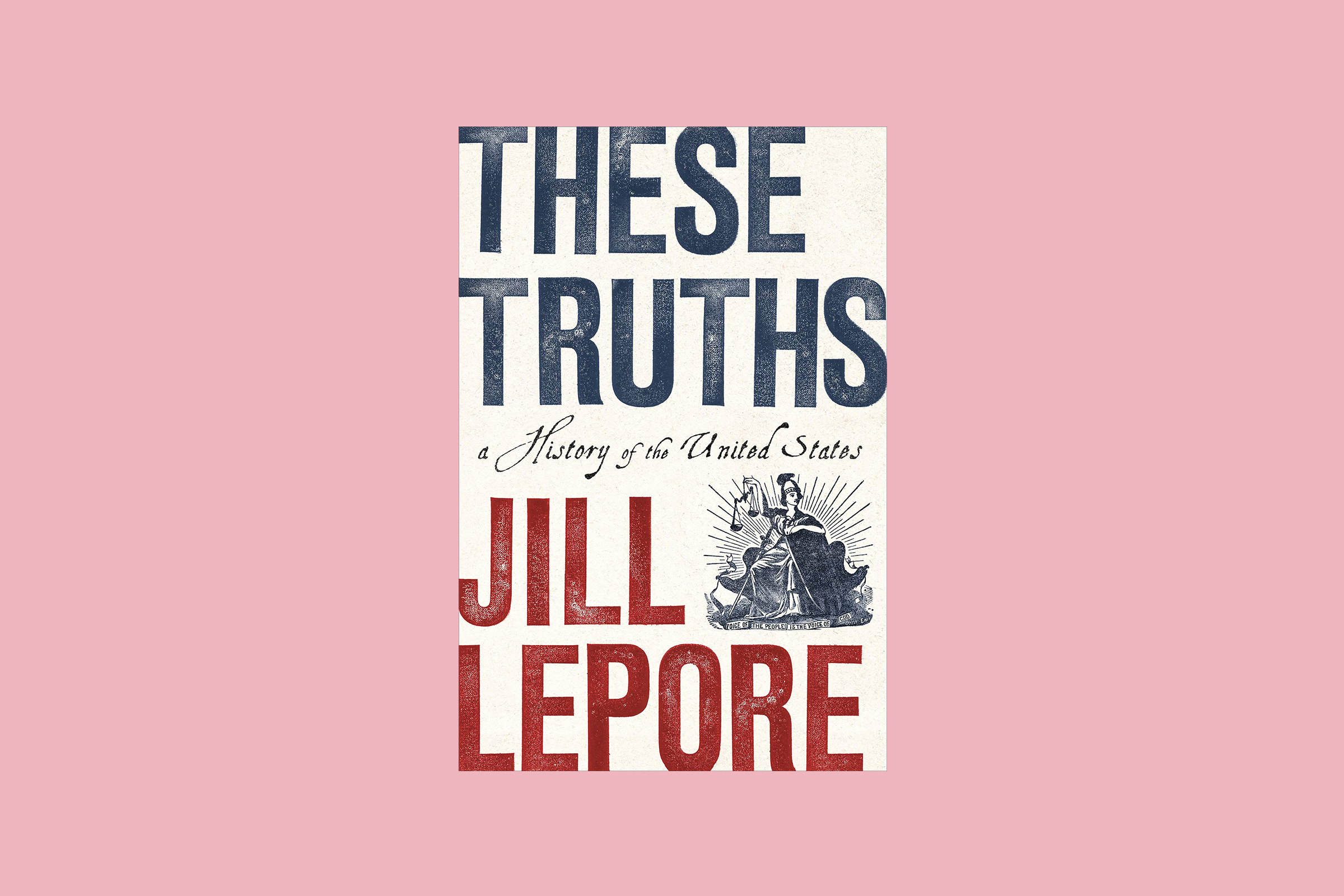
In recent decades, history writing has tended to go narrow, focusing on slices of the past — but Jill Lepore goes deep and wide in These Truths, her nuanced exploration of the history of the United States. Written in a moment of political turmoil, the acclaimed historian focuses on America’s core ideas and their contradictions — from free speech and its suppression, to liberty and slavery, and economic expansion and deprivation — that have animated the country from its founding. While bringing a fresh eye to well-covered events of the past, Lepore’s is also the first major popular history to bring our story right up to the present, incorporating everything from the triumphs of the gay rights movement to the ugly fissures of the 2016 presidential election. It’s exactly the kind of history that readers need today to understand the key struggles that have defined the United States — and to recognize that our history is always present.
More Must-Reads from TIME
- Cybersecurity Experts Are Sounding the Alarm on DOGE
- Meet the 2025 Women of the Year
- The Harsh Truth About Disability Inclusion
- Why Do More Young Adults Have Cancer?
- Colman Domingo Leads With Radical Love
- How to Get Better at Doing Things Alone
- Michelle Zauner Stares Down the Darkness
Contact us at letters@time.com